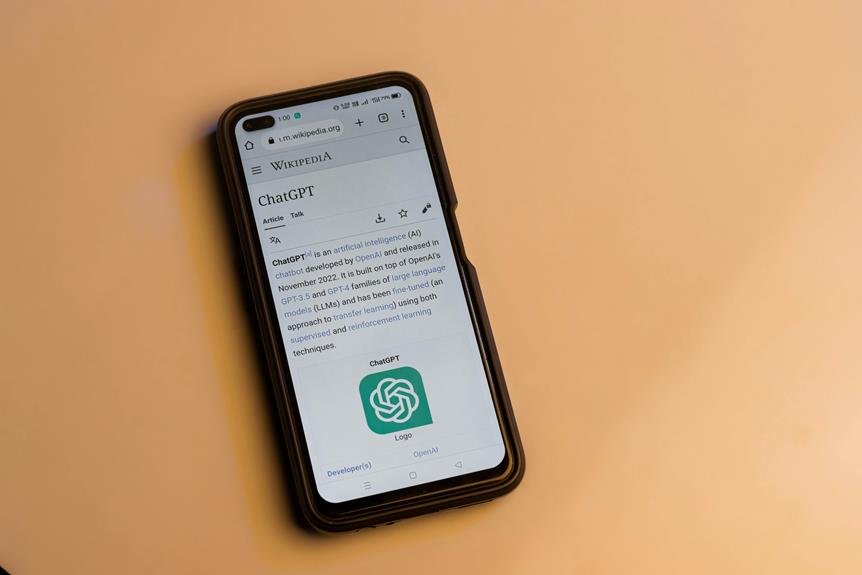
When deciding between infinite scrolling and pagination, consider your website's purpose, target audience, and content type. Infinite scrolling provides a seamless browsing experience, but can lead to slower load times and difficulty finding specific content. Pagination, on the other hand, makes it easier to navigate and find specific content, but may not be suitable for sites with a large number of items. The choice between the two ultimately depends on your users' needs and behavior. By understanding the pros and cons of each technique, you'll be able to make an informed decision that enriches your users' experience - and there's more to delve into on this topic.
When browsing online, you're likely familiar with two common techniques used to display content: pagination and infinite scrolling.
Both methods have their own strengths and weaknesses, and understanding how they work is vital for a seamless user experience.
Pagination divides online content into multiple webpages, providing a structured and hierarchical approach to accessing information.
This method is ideal for sites where users need to access specific pages, as it allows for quick browsing and improves SEO.
On the other hand, infinite scrolling allows users to continuously scroll through content in its entirety from a single webpage, with new content loading automatically as they reach the bottom of the page.
This technique is better suited for sites with a large number of items, providing a seamless and continuous browsing experience.
When deciding between pagination and infinite scrolling, consider the site's purpose, user behavior, and content type.
For instance, infinite scrolling is beneficial in applications where users have cursory involvement with elements on the page, such as Pinterest or Google Images.
Meanwhile, pagination is often preferred in applications where users spend more time reading or interacting with elements, such as job sites.
Both pagination and infinite scrolling have their advantages and disadvantages, which substantially affect the user experience.
When you opt for infinite scrolling, you can provide a seamless and continuous browsing experience, but it can lead to slower load times, decreased performance, and difficulty in finding specific content.
On the other hand, pagination provides a clear indication of the number of pages and items, making it easier for you to navigate and find specific content. However, it can be frustrating if there are too many clicks or slow page loads.
Infinite scrolling is suitable for sites with a large number of items, such as social media or image search results, but it can be annoying if not implemented correctly, causing you to lose your place in the content.
Traditional pagination is better for sites where you need to access specific pages, such as online marketplaces or forums, as it allows you to easily navigate to a specific page or item.
Ultimately, the choice between infinite scroll and traditional pagination depends on the site's purpose and target audience, in addition to your user behavior and preferences.

Choosing Between Pagination and Infinite Scroll
Your website's purpose and target audience play a significant role in deciding between pagination and infinite scroll.
For instance, if your website is primarily used on mobile devices, infinite scrolling might be a better option as it allows for easier navigation with a single thumb.
On the other hand, if your website is focused on providing in-depth content, pagination might be more suitable as it enables users to easily reference specific pages.
Consider the type of content you're displaying.
If it's a social media feed or a list of products, infinite scrolling can provide a seamless user experience.
However, if your content is more complex, such as a blog post or a search engine results page, pagination can help users better digest the information.
UX Design principles also come into play, as infinite scrolling can be overwhelming if not implemented correctly.
Ultimately, the key is to prioritize your users' needs and preferences when deciding between pagination and infinite scrolling.
Optimize your website's SEO performance by understanding the implications of infinite scrolling and pagination.
As regards search engine optimization, pagination remains the better solution, as it allows for clear organization and structure of content, making it easier for search engines to crawl and index.
Infinite scrolling, on the other hand, can lead to poor SEO performance if not implemented correctly, as search engines may struggle to index the content.
To improve SEO with infinite scroll, consider a hybrid approach that combines infinite scroll with pagination, allowing search engines to crawl and index paginated URLs while still providing a seamless user experience.
Using a canonical URL structure can also help mitigate SEO issues by specifying a preferred version of the page for search engines to index.
Furthermore, including a "view-all" option or a paginated series of pages can guarantee that all content is crawlable and indexable.

While optimizing your website's SEO performance is vital, it's just as significant to weigh the limitations and alternatives to infinite scrolling, as it can have a substantial impact on user experience.
Infinite scrolling can lead to usability issues, such as difficulty refinding content, illusion of completeness, and inability to access the footer, which can negatively impact user experience.
One alternative to infinite scrolling is the "load more" button, which provides a sense of control, reduces the illusion of completeness, and enables users to access the footer, making it a more accessible and user-friendly option.
Furthermore, infinite scrolling can cause accessibility problems, such as complicating navigation for keyboard-only users and screen-reader users, which can be addressed by using a "load more" button or pagination.
You can also consider a hybrid approach, where the initial few pages are paginated, and then infinite scrolling takes over, providing the best of both worlds.
Ultimately, it's vital to strike a balance between the benefits of infinite scrolling and pagination to guarantee a seamless user experience.
You're wondering if pagination is outdated, and honestly, it's not - it's still a reliable way to organize content, offering users control and a clear understanding of what's available, which can be really valuable in many cases.
You're wondering if infinite scroll is a good idea; it really depends on your content and users. While it can boost engagement, it may also lead to poor SEO, usability issues, and slow loading times, so consider your specific needs carefully.
You shouldn't use pagination when you want users to quickly browse a large amount of visually-oriented content, like images or profiles, or when you want to create a seamless, exploratory experience that fosters curiosity and excitement.
When designing an iOS app, you decide between infinite scroll and pagination by considering the type of content, user behavior, and technical capabilities, in addition to the user's goal, level of engagement, and performance constraints.
So, what's the verdict? Infinite scrolling or pagination? The answer depends on your content, audience, and goals. If you want to create a seamless browsing experience, infinite scrolling might be the way to go. But if you need users to focus on specific content or have a lot of data to organize, pagination is your best bet. Ultimately, choose the technique that best serves your users and your website's purpose.